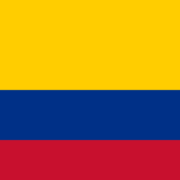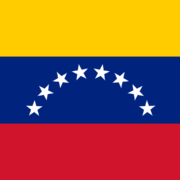Latin America
Nicaragua
Nicaragua, the largest country in Central America, boasts cultural diversity with notable contributions to literature and music.
Latin America
Nicaragua, the largest country in Central America, boasts cultural diversity with notable contributions to literature and music.
Population: 6,9 million
Main Religion:Christianity. About half of the population are Catholics.
Christians: 6,5 million (94.9%)
Emergency relief
Nicaragua, officially the Republic of Nicaragua, is the geographically largest country in Central America. The mixture of cultural traditions has generated substantial diversity in folklore, cuisine, music, and literature, including contributions by Nicaraguan poets and writers (Wikipedia) Nicaragua has an agricultural economy. It is one of Latin America’s poorest countries and suffers from high unemployment rates and a large external debt. Most people speak Spanish.
Nicaragua is described as not free by Freedom House, scoring 16/100 on their index. “The 2006 election of Sandinista political party leader Daniel Ortega began a period of democratic deterioration marked by the consolidation of all branches of government under his party’s control, the limitation of fundamental freedoms, and unchecked corruption in government. In 2018, state forces, with the aid of informally allied armed groups, responded to a mass antigovernment movement with violence and repression. The rule of law collapsed as the government moved to put down the movement, with rights monitors reporting killings, extrajudicial detentions, disappearances, and torture. Since then, Ortega’s regime has consolidated its power by engaging in surveillance, curtailing press freedoms, arresting political opponents, and sending opposing voices into exile.”
The last presidential election in 2021 took place under inhospitable conditions for a democratic electoral process.
Although for many years Nicaragua appeared to be one of the safest and most stable countries in the region, since 2018 it has seen a weakening of the rule of law, as well as worsening corruption and repression.
The government has tightened control over charities and non-profit organisations, before closing many down. Churches and universities have lost funding or run into legal troubles, at times as a retaliation for criticism against the government. The government has used intermittent internet outages to inhibit protesters and regime opponents.
Nicaragua is on USCIRF’s list of countries of particular concern. The government of President Daniel Ortega and Vice President Rosario Murillo intensified its efforts to arbitrarily arrest, imprison, and expel Catholic clergymen and laypeople. The government also cancelled the legal status of Catholic organizations, confiscated their property, and harassed and intimidated worshipers. The Nicaraguan government used spurious charges such as spreading “false news” and “conspiracy to undermine national integrity” to justify its arbitrary arrest, imprisonment, and exile of actual or perceived members of the Catholic Church. The regime continued to systematically target religious organizations it viewed as opponents, particularly Catholic charitable and educational organizations. The ongoing harassment of worshipers took many forms. Uniformed and plain clothes government agents intimidated clergy and parishioners by conspicuously monitoring religious services. The Ortega-Murillo regime banned the public observance of Catholic traditions such as street processions during Holy Week. President Ortega and Vice President Murillo also used disparaging language to demonize the Catholic Church, referring to it as a “mafia” and calling priests “representatives of the devil.”
Freedom House reports that Catholic Church officials have been denounced and smeared by authorities for accompanying or defending antigovernment protesters since the 2018 movement was repressed. Pro-government mobs attacked churches where protesters were sheltering, while clergy members received threats and experienced surveillance.
The regime has since continued to target Catholic clergy and restrict religious expression. In February 2023, a court sentenced Bishop Rolando José Álvarez Lagos, an outspoken critic who was arrested in 2022, to 26 years’ imprisonment for charges including treason after he refused to be exiled to the United States. The court also ordered that Álvarez’s citizenship be revoked. In June, the Inter-American Court of Human Rights called for his release. The regime briefly did so, but Álvarez was sent back to prison in July because he reportedly refused banishment; he remained in custody at year’s end.
In 2023, Nicaragua entered Open Doors World Watch List top 50 for the first time. Now it has risen 20 places. “President Ortega continues to see Christians as enemies of the government, and recent changes to the law have been used to label church leaders as terrorists. They have been harassed and arrested, and churches are fiercely monitored. The authorities want to silence and discredit the church”.
In August 2023, the regime dissolved the Society of Jesus, better known as the Jesuits, in Nicaragua and confiscated its assets. The Interior Ministry accused the order of violating regulations on nongovernmental organizations (NGOs).
Christians find themselves monitored, harassed, sanctioned, and prosecuted for their use of media and social media. Zoom meetings organized by churches have been monitored by informers and, on occasion, church leaders have been met with police officers outside their homes.
Other examples of persecution are:
The Ortega regime has cracked down on free and independent media and journalists. The government has intimidated and arrested journalists, censored media outlets, and worked to deprive print media of essential supplies, including ink and paper. The regime has also targeted foreign outlets. According to a report from the Foundation for Freedom of Expression and Democracy, 1,329 press freedom violations occurred between April 2018 and April 2023, most of them committed by government agencies.

 Venezuela
Venezuela